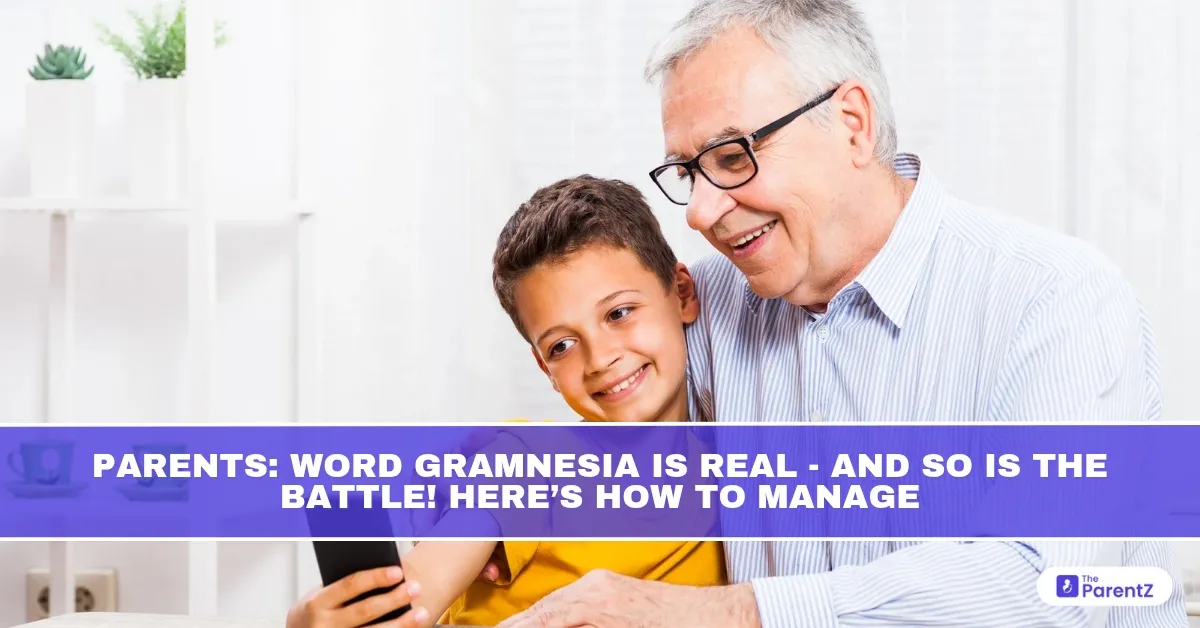You’re midway through explaining something to your child—maybe it’s homework help, or a story from your childhood—and suddenly, your brain goes completely blank. You know the word… it’s right there… you’ve used it a hundred times. But now? It’s vanished.
This is Word Gramnesia—that strange moment when your brain goes, “Nope. Not today.”
The reality is— if you're raising kids, juggling work, trying to remember who needs what for school tomorrow, and answering questions like “What’s the opposite of invisible?” at 7:43 a.m., then it’s no surprise your brain is dropping words like hot potatoes.
But why does this happen? And how do you manage it when you're the human Google in your household?
What Exactly Is Word Gramnesia?
While word Gramnesia isn’t a clinical diagnosis—but it might as well be for parents like you. It’s that moment when you temporarily forget a perfectly common word. Not an obscure SAT word. No. We’re talking everyday words like “microwave,” “carpet,” or “scissors.”
You’ll say something like:
“Can you pass me the… the… ugh, the thing you use to cut paper?”
And your child looks at you with that mix of confusion and concern like, “Is Mom okay?” And you think, “Am I okay?”
No, you’re not losing your mind. But yes, your brain is tired. Overloaded. And slightly fried.
Why It Happens?
You’re not “getting old.” You’re just running an unpaid, 24/7 mental operations center. Between remembering your toddler’s allergy chart, your teen’s math exam schedule, and what time you’re supposed to pick up the dry cleaning (that you forgot anyway) — your brain is full.
Cognitive overload is real. Neuroscientists have even found that when your brain is juggling too many tasks or switching contexts frequently, it deprioritizes language recall, especially for low-stakes, familiar words.
It’s not just a funny moment—it messes with your confidence. You might feel frustrated, embarrassed, or even anxious when it keeps happening. It can make you second-guess yourself when talking to your child’s teacher, or worse—your own child.
How to Manage Word Gramnesia Without Losing Your Mind
Here are a few effective tips that really helps—when your brain decides to blank out mid-sentence.
Slow Down—Seriously
You’re probably talking and doing three things at once. Try pausing for two seconds before you speak. Not only does it help your brain catch up, but it teaches your kids it’s okay to pause and think before speaking (imagine that).
Play Word Games
Play word association games or even silly rhyming games with your kids. Not only is it fun, but it boosts your language recall and gives your brain a workout that doesn’t involve screen time or guilt.
Make a ‘Lost Words’ List
When a word slips away, write it down once it comes back. Keep a small notebook or notes app with “Words I Forgot Today.” It might feel ridiculous, but over time, you’ll laugh at the list—and you'll start remembering them more easily.
Don’t Apologize for It
Your child needs to see that adults forget things, too. Model grace with your own memory slips. Say, “Oops, my brain is buffering again,” and move on. You’re showing them that perfection isn’t the goal—resilience is.
Fuel Your Brain Too
You remember to pack snacks and water bottles for your kids—but are you hydrated? Did you eat today? Your brain needs glucose and rest. So yes, drink the water. Eat the fruit. Take the nap if you can.
Conclusion
If you ever feel like you’re losing it because the word ‘towel’ slipped your mind—breathe. You’re in the trenches of parenting, and your brain is doing its best under pressure.
Word Gramnesia doesn’t mean you’re failing. It means you’re showing up. Every day. For everyone.





Be the first one to comment on this story.